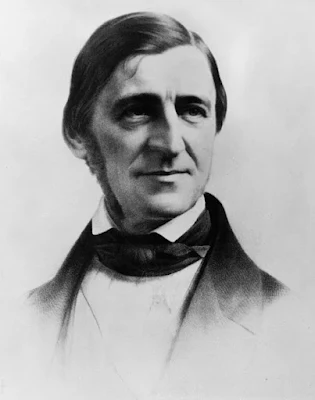The Flourishing of
American Literature
Nathaniel
Hawthorne and Transcendentalism
During
the 1830s and 1840s, the frontier of American society moved westward, prompting
writers such as Brackenridge and Cooper to find inspiration in the Western
frontier for their literary works and American life. During this period, Boston
and its surrounding towns and villages buzzed with intellectual fervour and
energy. Education was no longer limited to Harvard in nearby Cambridge; other
institutions also demonstrated a strong commitment to learning. The influential
North American Review, established by Harvard professor Edward Channing in 1818,
actively disseminated ideas, although it had become somewhat conservative by
this time. Beginning in 1826, itinerant speakers have disseminated insights on
culture and science to urban areas as well as the rural landscapes of New
England. The establishment of entities such as the Useful Knowledge Society, Natural
History Society, and the Mercantile
Library Association played a pivotal role in cultivating a culture of
regular attendance at lectures among numerous residents in New England. The
younger generation engaged in extensive discussions about the emergence of a
'new Spiritual era.' Dissatisfied with conventional patriotism, the young
intellectuals in Boston were uninterested in America's power and wealth,
instead seeking a deeper exploration of the inner life. They examined the
philosophers from Greece, Germany, and India. Several individuals documented
their experiences and emotions in personal journals, while some embraced
vegetarianism or nudism.
Transcendentalism
is an idealistic idea in New England based on the fundamental unity of all
creation, the innate goodness of humanity, and the belief in the superiority of
inner experience over external circumstances. They saw both religions as
"negative, cold, lifeless". While
they held Christ in high regard for the wisdom conveyed in his teachings, they
considered the works of Shakespeare and renowned philosophers to be equally
significant. The Transcendentalists tried to find the truth through feeling and
intuition rather than through logic. They regarded nature as their
"guiding scripture" in numerous aspects. The significance of birds,
clouds, trees, and snow held a special meaning for them, forming a unique
language through these natural images. Transcendentalists were split into two
factions: one focused on societal change, and the other, exemplified by figures
such as Emerson and Thoreau, prioritized individual concerns. In 1837, Emerson
delivered a renowned address at Harvard University titled "The American
Scholar." In this speech, he criticized the sway of tradition and the past
while advocating for a fresh wave of American ingenuity. According to Emerson,
the term "scholar" did not denote someone steeped in conventional
book knowledge but rather an individual with original thinking abilities. Such
a person understood themselves through intuition and the exploration of nature,
not merely through the study of written works. He revised Self-Reliance (1841), which stands out as one of the most renowned
lectures/essays and continues to be extensively studied in American high
schools today.
Nathaniel
Hawthorne (1804-1864)
He
criticized the Transcendentalists for overlooking the uncertainties that cast
shadows over the world. His story "Celestial
Railroad" (1843) is a satirical take on Christian, the protagonist
from John Bunyan's "Pilgrim's
Progress." Hawthorne consistently explores the theme of individuals
within societal contexts rather than focusing solely on the depiction of
individuals in natural settings. His characters often harbour concealed
feelings of guilt or personal issues that set them apart from others. These
individuals grapple with emotions such as pride, envy, or a longing for
revenge. Hawthorne's fascination with the darker aspects of the human psyche
leads him to craft narratives reminiscent of the Gothic novel tradition. Hawthorne
meticulously delves into the psychology of his characters in his initial novel,
Fanshawe (1828), where themes of
isolation and futility take centre stage. The narrative revolves around a young
prodigy who passes away prior to achieving a monumental artistic feat.
Attempting to emulate the prevalent Gothic fiction of the era, the novel is
regarded by Hawthorne as a disappointment. Hawthorne's best work usually has a
strong feeling for the Puritan past of seventeenth-century New England. This is
the setting of The Scarlet Letter (1850), considered his masterpiece.


No comments:
Post a Comment